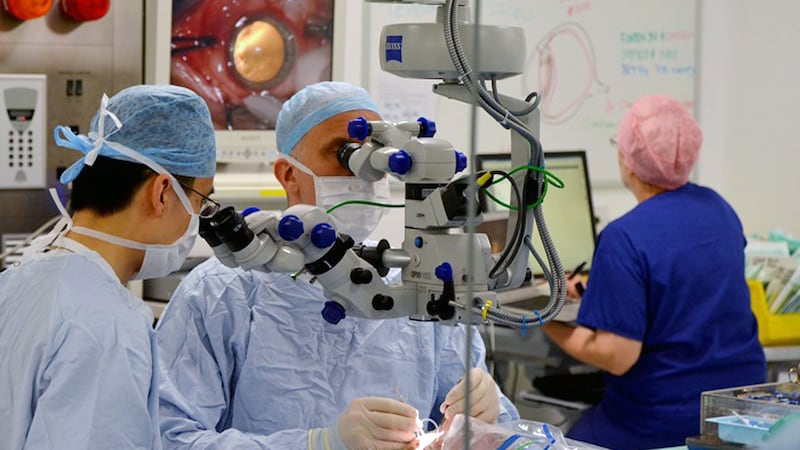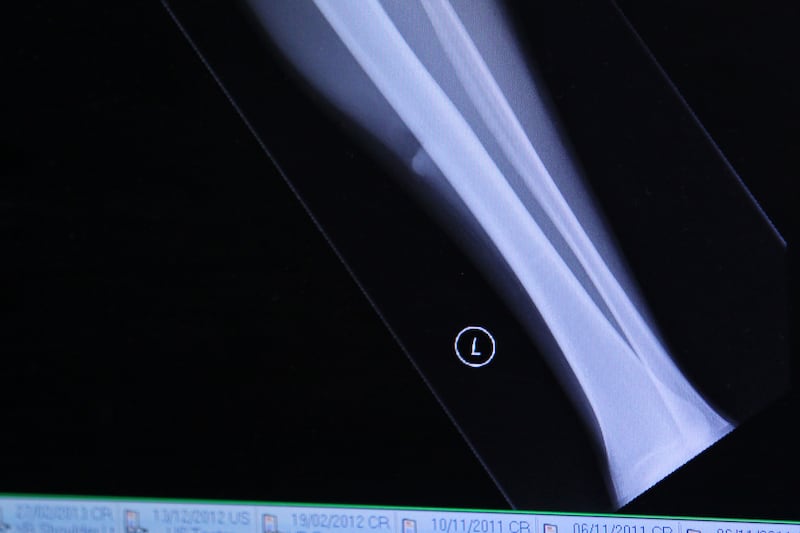An experimental gene therapy treatment has improved the sight of patients with a rare blindness condition.
In a ground-breaking trial, the technique prevented vision loss in 12 out of 14 participants without complications.
A number of patients saw their vision improve and six gained the ability to identify more than five letters in eye tests.
Patients were monitored for up to five years.
During this time visual ability was maintained in only a quarter of untreated eyes.
All the participants suffered from choroideremia, an inherited condition than triggers progressive vision loss.
The disease, which mostly affects men, is caused by the gradual loss of light-sensitive retinal cells at the back of the eye.
Each patient in the trial had a harmless virus carrying a missing gene injected into the back of the eye.
Lead scientist Professor Robert MacLaren, from Oxford Eye Hospital, said: “The early results of vision improvement we saw have been sustained for as long as we have been following up these patients and in several the gene therapy injection was over five years ago.
“The trial has made a big difference to their lives.”
The small pilot trial, reported in the journal Nature Medicine, has paved the way for a much larger on-going study involving more than 100 patients from nine European countries and North America.
Gene therapy seeks to treat inherited diseases by correcting defective DNA.
The usual method is to employ a genetically engineered virus to “infect” a patient with the “right” version of a gene.
Dr Neil Ebenezer, director of research at the charity Fight For Sight, which funded the trial, said: “All research breakthroughs are made by standing on the shoulders of others.
“Our mission is to fund research that will stop sight loss and we’re delighted to have been part of this breakthrough which will have huge benefits for the future.
“This technique could transform how we treat diseases and could have broad applicability to a range of other conditions.”








